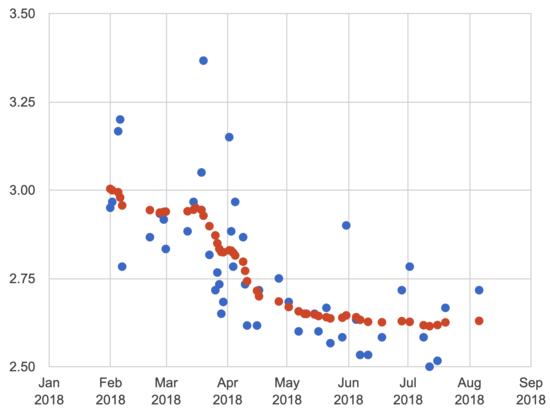Two years ago I decided I was going to start running between my house and the subway station each day on my commute, for a total of about five miles a week. Initially I was very interested in getting faster, and would time myself a couple days a week, trying to beat my previous best:
Unfortunately, after six months I was pushing myself too hard, and my knees started hurting. I stopped timing my runs and stopped running so hard, and they got better again. I'm still running, but at a gentler pace.
This experience was a good illustration of how optimizing for a metric can often bring you towards your overall goals for a while, but then continuing to optimize on it can start to bring you away from them again.

I haven't had the OP's problem, but I set goals that was more fixed (X speed, Y distance), and just aimed to be fast enough.
There were two bus stops (let's call them A and B) that weren't too far apart. If on my way to either of them, I noticed the bus going from A to B, I started running to catch up. I also ran other times so I'd get places faster. The goal wasn't 'go as fast as I can to beat my previous time' but 'get places faster'. If you run too fast (for where you're at physically), then you have to slow down, and don't arrive as quickly as you would've if you'd paced yourself more. Also, while you're recovering, you're less able to do other things, and if the goal is decreasing 'travel time + recovery time' then that can mean not pushing yourself too much more (until you improve) once you hit that sweet spot.